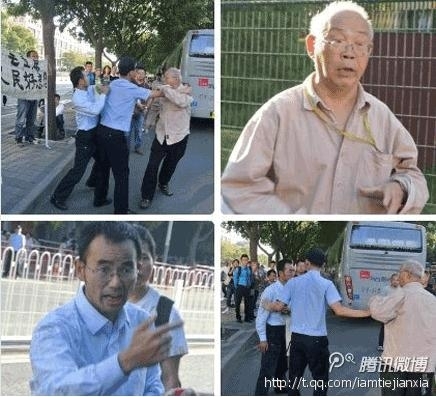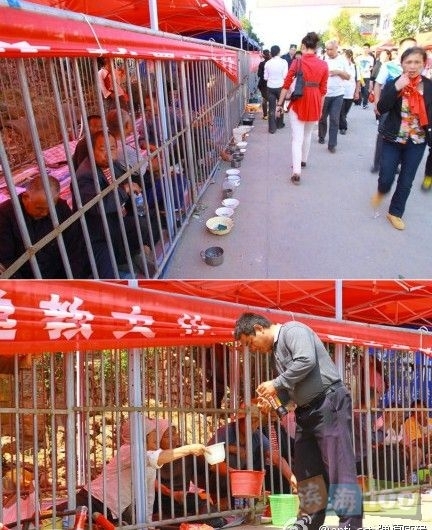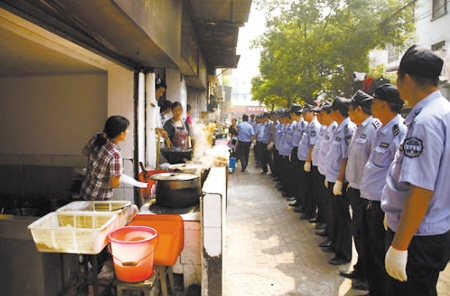
September 21, 2012
Translated by Zhang Dian
Editors from the EO's Chinese website publish a daily collection of extracts from commentary pieces that have appeared in the mainland press over recent days. Every Friday the EO's English team translates a selection of these opinion pieces.
Harbin Bridge Collapse
Background:
On Sept 19, the Harbin government released results of an investigation into the August bridge collapse that killed three people. The report said that four over-loaded trucks triggered the collapse, and that the Municipal Transportation Bureau (交警市政) should take secondary responsibility.
Commentary:
How can officials only take minor responsibility for the collapse? How can they convince the public of this notion? How can there be no problems with the design, construction and surveillance of the bridge? How can the Municipal Transportation Bureau escape rebuke? In essence, this impunity reduces people’s trust in the government.
China Business View (華商報)
Original article:[Chinese]
Overloading can cause bridges to collapse, but officials have to make it clear why and how this overloading leads to collapse. Are there any other problems that contributed to this accident? Was the bridge really qualified?
Beijing Times(京華時報)
Original article: [Chinese]

Photo Link
Professor Hits Old Man
Background
On Sept 18, anti-Japan protestors carried a banner saying “We miss Chairman Mao.” An old man in his eighties expressed contempt for this, and got slapped by Han Deqiang (韓德強), a professor from Beihang University(北京航空航天大學). The professor refuses to apologize, calling the old man a traitor.
Commentary
Someone feels justified in hitting others as long as he has a good reason? How preposterous it is! Scholars and Professors should be responsible for setting an example of freedom of speech and social decency. However, some scholars and professors set a bad example.
The Beijing News (新京報)
Original article:[Chinese]

Photo Link
Caged Beggars in Nanchang
Background:
On Sept 15, a temple fair held in Xishan Town of Nanchang City in Jiangxi Province (南昌市新建縣西山鎮(zhèn)) set fencing that resembled a cage in order to prevent beggars from harassing visitors.
Commentary
Is this special cage organized by the government or by the temple fair commission? Obviously the government should neither insult a beggar like this nor allow it to happen.
Beijing News(新京報)
Original article: [Chinese]
Dignity doesn’t exist in this special cage. Managers should realize that poverty, as a natural occurrence, can’t be wiped out until beggars are taught the skills needed to make a living. At that time, the order of a city can be assured. A temple fair is quite ordinary and begging is a common phenomenon. We’d better accept it.
Huaxi Metropolis Daily (華西都市報)
Original article: [Chinese]
It’s discrimination to confine beggars inside the fencing. It means that they’re treated as disgusting people. Even if the temple fair commission offers food to them, the beggars are still put in an inferior situation. Beggars should have had freedom to beg, but they didn’t.
Southern Metropolis Daily (南方都市報)
Original article: [Chinese]
The more the weak step back, the more the strong expand. This fence is a reflection of an over-manipulating government rather than a do-nothing government. One thing in common between the caged beggars and those cage makers is that both are trampling human nature and harming people’s dignity.
Qianjiang Evening News(錢江晚報)
Original article: [Chinese]

Hubei Chengguan
Background
Chengguan – city management officials who enforce minor municipal regulations - have created a new way of doing their jobs. In Wuchang District of Wuhan City in Hubei Province (湖北武漢市武昌區(qū)), about 20 chengguan stand around watching illegal stands without actually saying or doing anything. Then, stand owners realize their mistake and close their stands on their own volition. This is considered a silent way of keeping order (靜默隊列式執(zhí)法).
Commentary
Is the conflict between chengguan and the people they regulate irreconcilable? No. All we need is more communication and understanding between the two parties. This new method shows a big improvement over keeping order in a violent way. But in order to change their bad image, chengguan should bear it in mind that they are actually servants to, rather than managers of, the public.
Foshan Daily(佛山日報)
Original article: [Chinese]
Obviously, chengguan have realized their old mistakes and are now begining to create new methods for keeping social order rather than using violence. Although we still feel suspicious about the effect of these innovative methods, it is undeniable that chengguan are putting much more emphasis on human-oriented service. With the ability to try new ways of management, we should have faith in chengguan in the future.
Cnhubei (荊楚網)
Original article: [Chinese]